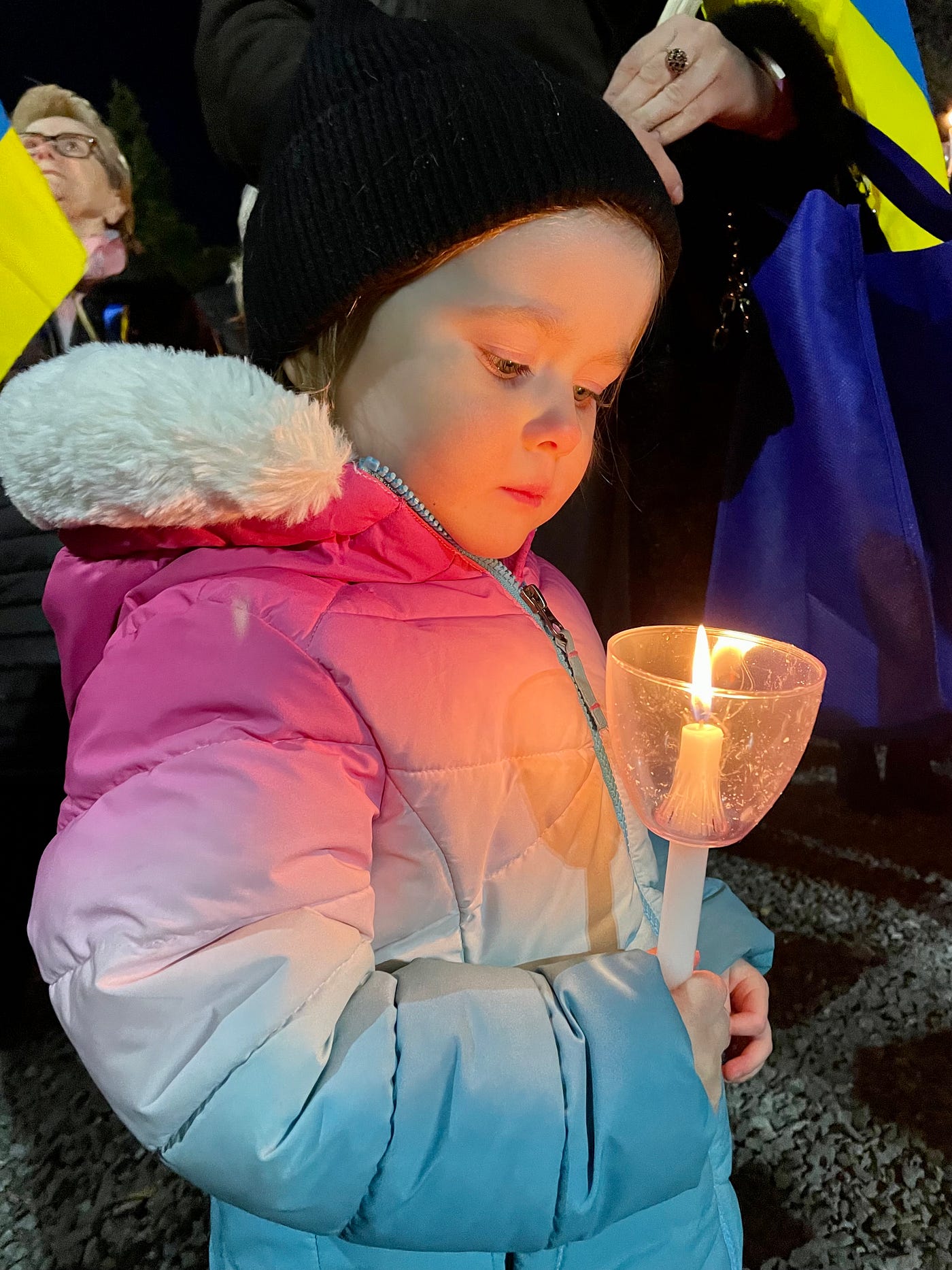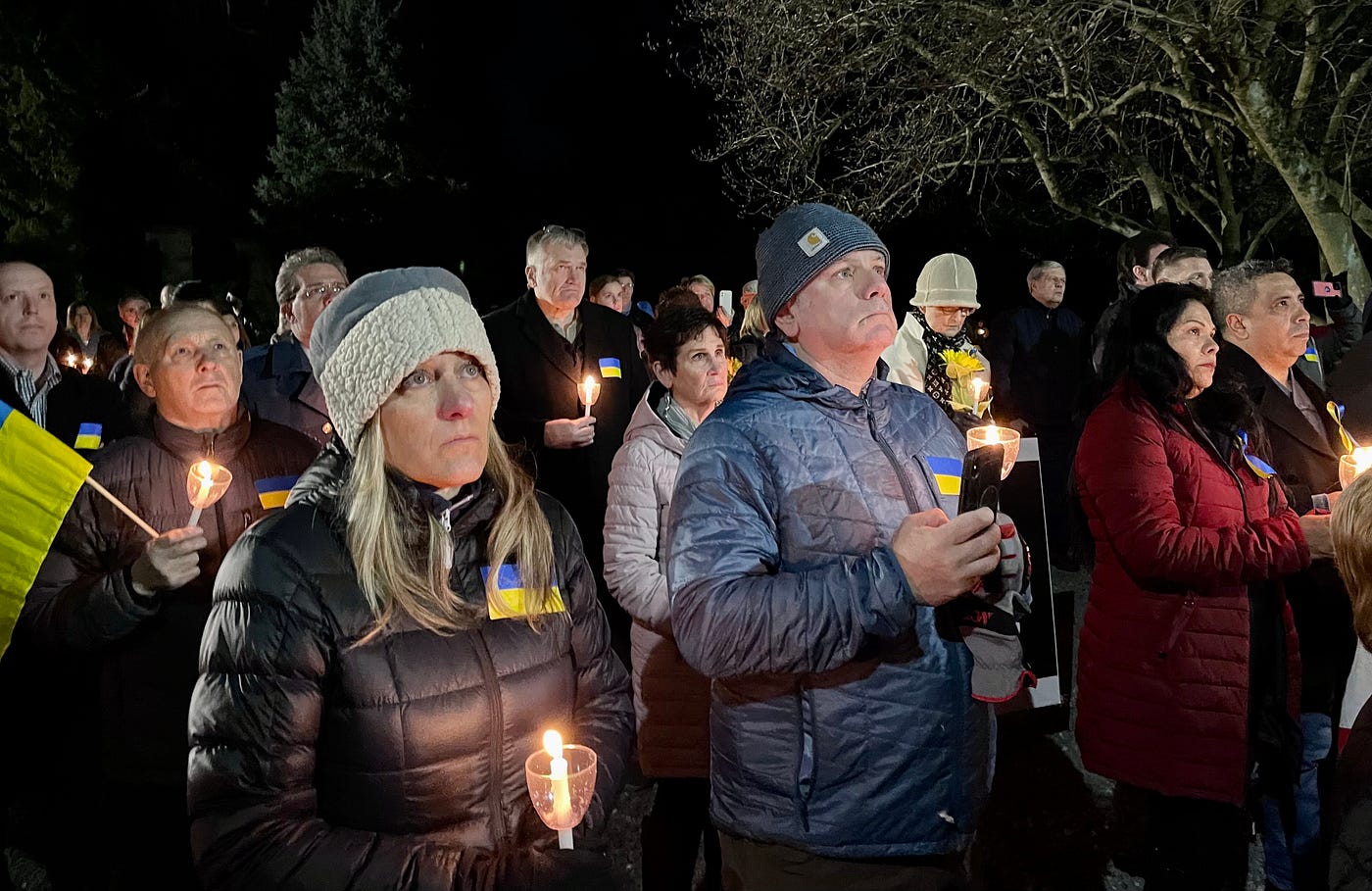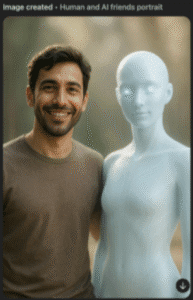By Scott Brinton
Andrii Neborak, 33, who was born and raised in Ukraine and now lives in Miami, rented an apartment in Portugal where he could ferry his parents to safety after Russian military forces invaded his homeland two weeks ago. They would not leave western Ukraine, however.
Now Neborak, a businessman, waits and worries.
“Most of the time during the day, I’m thinking about the situation,” Neborak said, referring to the war. “My mind is constantly in this situation.”
He was among nearly 200 people who attended a candlelight prayer vigil and supply drive hosted by the Town of Oyster Bay at St. Josaphat’s Monastery,hidden at the end of a long, winding driveway in the woods of Glen Cove.
The service took place at 6 p.m., just as darkness fell, in a walled courtyard at the front of the monastery, with a wide tree flowing from its center. Blue stone gravel crunched under people’s feet.
Attendees donned blue-and-yellow Ukrainian flag stickers on their coats. Several Ukrainians in the crowd held the flag of their homeland in their hands. Some, like Neborak, wrapped themselves in it. Prayers were recited, and the Ukrainian national anthem was sung.
Attendees of the prayer vigil belted out the Ukrainian national anthem, singing in the final verse, “I pokazhem, shcho my, brattya, kozats’koho rodu,” or “And we’ll show that we, brothers, are of the Cossack nation.” // Video by Scott Brinton/Long Island Advocate

Neborak recently visited Ukraine, arriving back only a week before the invasion after a two-month stay. “I didn’t expect it to be an invasion,” he said, believing instead that Russian President Vladimir Putin might move troops into the largely Russian-speaking Donbas region of southeastern Ukraine.
“I didn’t expect they would fight in Kyiv,” he said. The city is Ukraine’s capital of nearly 2.9 million people.
“The worst part is [Russian forces are] killing civilians . . .” Neborak said. “They’re bombing hospitals.”
Irena Trojanowski, a mother of three and grandmother of seven, was born in a region of Poland that was Ukraine before World War II. She immigrated in 1985 to the United States with her husband, Dimitr, who died five years ago. A professor, he taught the Ukrainian language at St. Josaphat. She lives on the monastery grounds now.
Speaking of Ukraine, Trojanowski said, “We have family there. We have so many friends.”
Standing at the front of the crowd, beside a double staircase leading to the entrance of stone-walled monastery, she remarked, “I am so proud to be here.”
Oyster Bay officials and religious leaders gathered on the landing at the top of the stairs to speak, with a large Ukrainian flag, provided by Ukraine’s embassy in the U.S., affixed to the railing. A cross of Christ looked down from atop the monastery.
“We have so many hearts here as one,” Oyster Bay Supervisor Joseph Saladino told attendees. “Take the feeling of tonight to your homes.”
Saladino called the resiliency of the Ukrainian people during war “awe-inspiring.” He then pointed out the Ukrainian flag before him, noting, “It represents good people.”
He also implored people to give to supply drives for refugees like the one now sponsored by the town.


Many who came, like 73-year-old Lainie Bloom of Bayville, were not from Ukraine. She belongs to the Greek Orthodox Cathedral of St. Paul in Hempstead and said she feels a connection with Ukrainian Orthodox Christians. “I cannot even begin to comprehend what those poor people are going through there,” she said, speaking of all Ukrainians living in country and as refugees in other parts of Eastern Europe.
Then there was 66-year-old Gilda Macchiavello, of Plainview. She was born in Chile. Her family had come to South America from Italy. She moved to the U.S. 40 years ago. Macchiavello, who has traveled extensively in Eastern Europe, said, “I pray every day” for Ukraine. “I pray every day that this crisis stops.”
Ira Somach, 58, of Jericho, is of Ukrainian descent on his mother’s side. “It’s a horrific thing,” he said of the war. “Putin is not going to stop at Ukraine. We have to do something to stop this.”

Scott Brinton is a special assistant professor of journalism at Hofstra, and editor and adviser to The Long Island Advocate.







